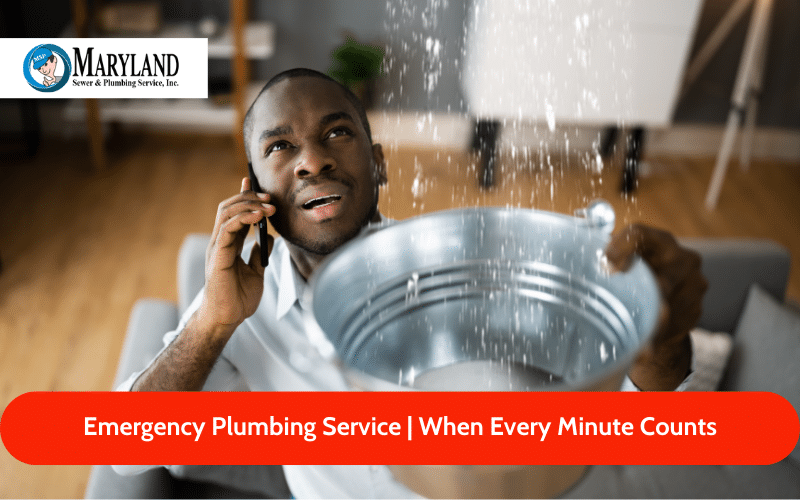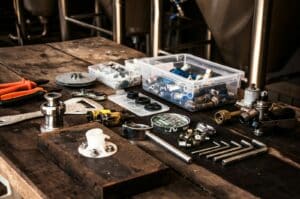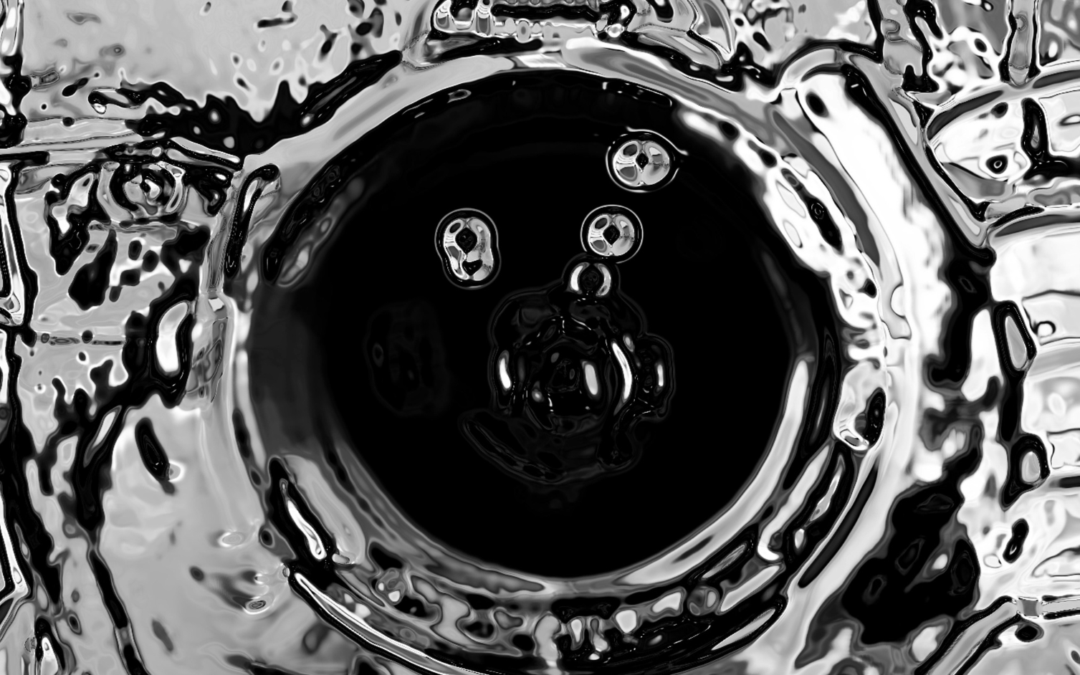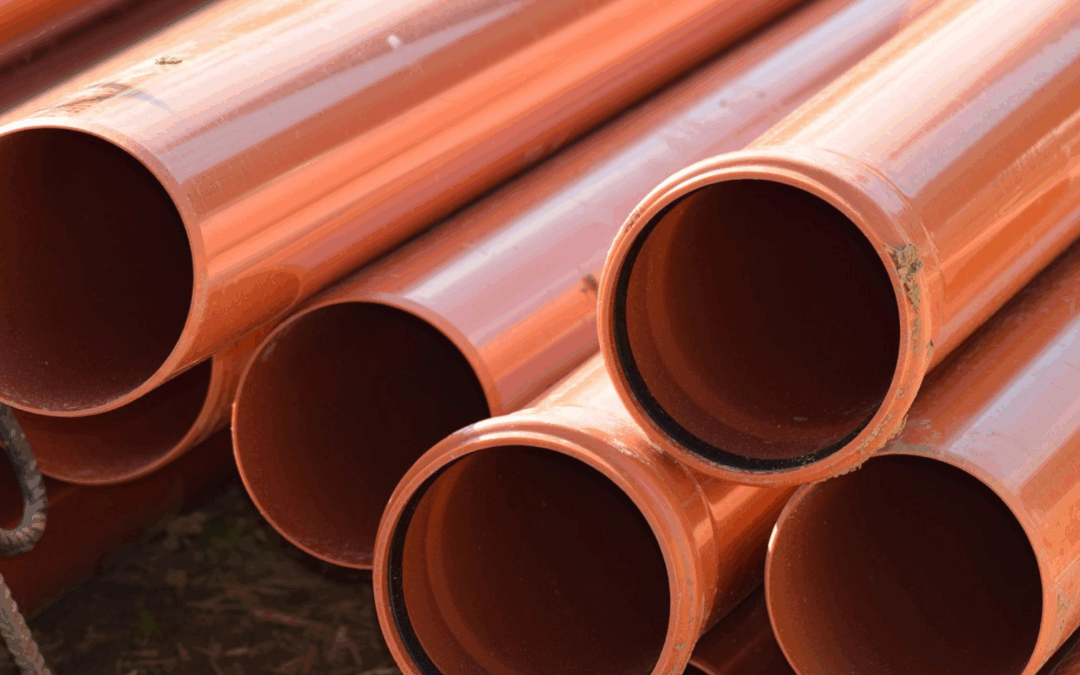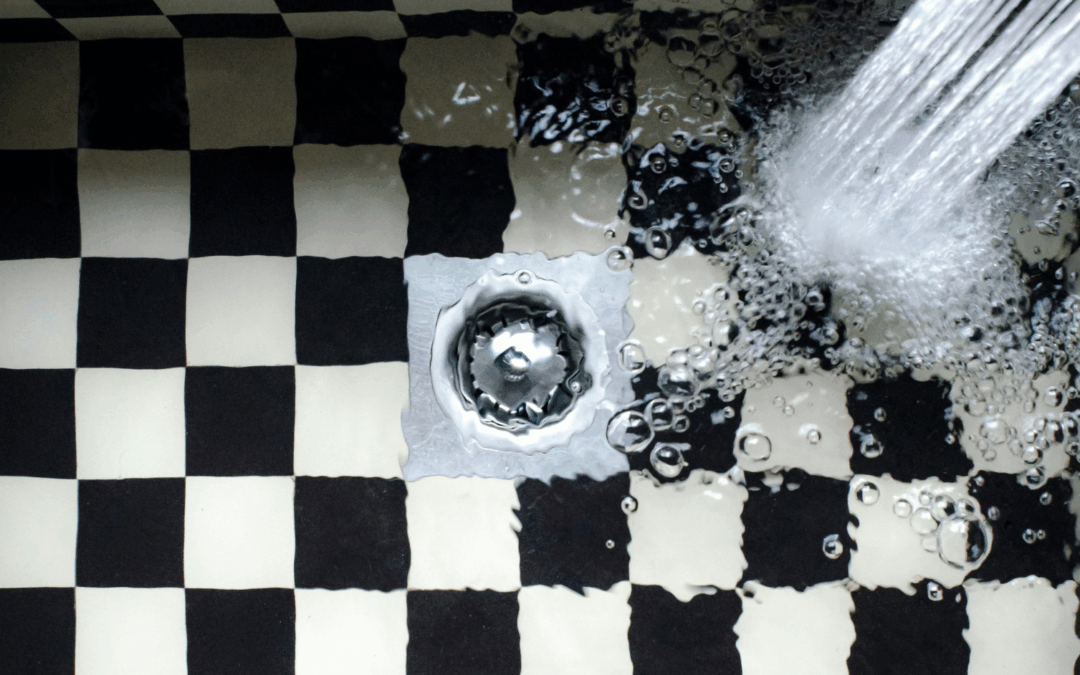Need emergency plumbing service?
Picture this—you’ve just returned home after a long day, eager to relax, when suddenly, disaster strikes. Water is everywhere, and panic sets in as you realize you have a plumbing emergency on your hands.
This scenario is more common than you’d think, and being prepared can make all the difference. In this blog post, we’ll explore the world of emergency plumbing services, focusing on common plumbing emergencies and how to deal with them effectively.
Schedule Service Online
Get a free estimate so you know what you're signing up for
"*" indicates required fields
For Emergency Services Call: 410-255-9300
Homeowners, property managers, DIY enthusiasts, and real estate agents alike will find value in understanding how to manage these urgent situations. We’ll cover everything from the most common plumbing issues to when you should call in an expert plumber. By the end, you’ll be equipped with the knowledge to handle any plumbing emergency confidently.
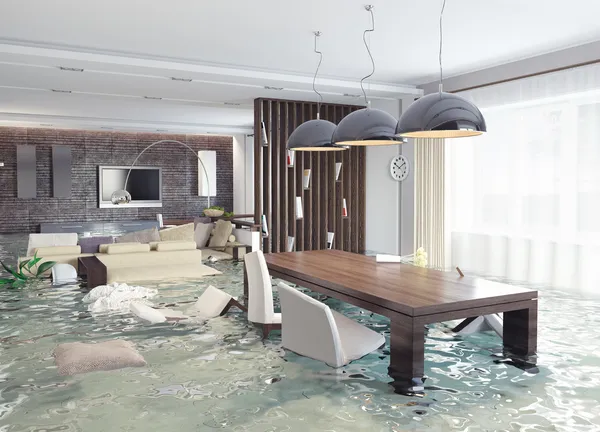
Understanding the Basics of Emergency Plumbing Services
When it comes to plumbing emergencies, time is of the essence. Knowing what emergency plumbing services entail can help you make informed decisions when trouble arises. Emergency plumbing services are designed to provide immediate solutions for urgent plumbing issues, ensuring minimal damage to your property and quick restoration of your plumbing system.
These services typically include 24/7 availability, rapid response times, and experienced plumbers who can tackle a wide range of problems. Whether it’s a burst pipe, overflowing toilet, or a broken water heater, emergency plumbers are equipped to handle it all. The goal is to address the issue promptly, preventing further damage and ensuring the safety of your home.
It’s important to note that not all plumbing companies offer emergency services. When choosing a plumbing service provider, ensure they have a dedicated emergency team ready to respond at any time. This way, you can rely on them to come to your aid during critical moments.
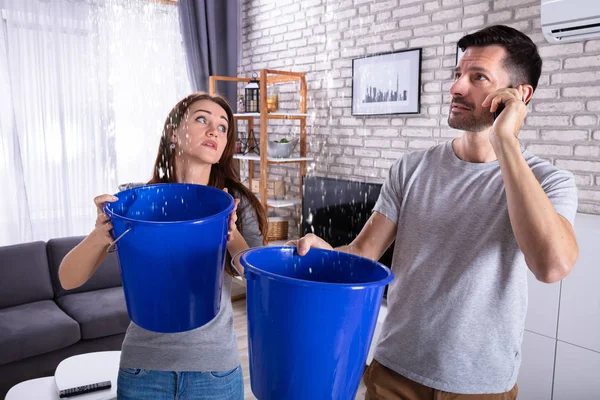
The Role of an Emergency Plumber
An emergency plumber is a professional trained to handle urgent plumbing issues with speed and efficiency. They possess the skills and knowledge needed to assess the situation, identify the problem, and implement a suitable solution. Their primary goal is to resolve the issue while minimizing disruption to your home and family life.
Emergency plumbers often work in teams to tackle complex problems quickly. When a plumber arrives, they conduct a thorough inspection of the affected area, looking for signs of water damage, pipe leaks, or clogs. Using advanced tools and techniques, they can diagnose the problem and recommend the best course of action.
In some cases, emergency plumbers may need to perform immediate repairs, such as replacing a broken pipe or fixing a malfunctioning water heater. They also provide valuable advice on maintaining your plumbing system to prevent future emergencies. By relying on their expertise, you can rest assured that your plumbing issues will be resolved efficiently and effectively.
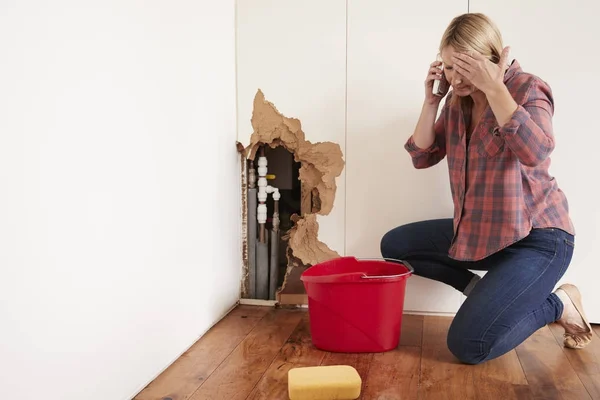
Most Common Plumbing Emergencies and How to Handle Them
Plumbing emergencies can strike without warning, but knowing the most common issues can help you stay prepared. Some of the most frequent emergencies include burst pipes, overflowing toilets, clogged drains, and malfunctioning water heaters. Understanding how to address these problems can prevent further damage and save you time and stress.
Burst Pipes
A burst pipe is one of the most severe plumbing emergencies, often leading to significant water damage. If you suspect a burst pipe, the first thing to do is shut off the main water valve to stop the flow of water. Once the water is off, contact an emergency plumbing repair service to assess and fix the pipe.
Overflowing Toilets
An overflowing toilet can cause flooding and unsanitary conditions in your home. To resolve this issue, turn off the water supply to the toilet and try to clear the clog using a plunger. If the problem persists, call an emergency plumber to identify the cause and provide a long-term solution.
Clogged Drains
Clogged drains are a common issue that can lead to slow drainage and unpleasant odors. While minor clogs can often be fixed with a plunger or drain snake, persistent clogs may require the expertise of an emergency plumber. They can utilize hydrojetting or other advanced techniques to clear the blockage and restore proper drainage.
Malfunctioning Water Heaters
A broken water heater can leave you without hot water, disrupting your daily routine. If your water heater isn’t working correctly, check for any visible signs of damage or leaks. If you can’t identify the problem, contact an expert plumber to diagnose and repair the issue.
Preventing Plumbing Emergencies Before They Happen
While emergencies can’t always be avoided, there are steps you can take to minimize the risk of plumbing issues. Regular maintenance and inspections are essential for keeping your plumbing system in top condition. By addressing potential problems early, you can prevent costly repairs and ensure the longevity of your pipes and appliances.
One of the most effective ways to prevent plumbing emergencies is to schedule routine inspections with a professional plumber. They can identify signs of wear and tear, corrosion, or blockages that may lead to more severe issues. By catching these problems early, you can address them before they escalate into emergencies.
Additionally, practicing good plumbing habits can go a long way in preventing problems. Avoid flushing non-degradable items down the toilet, use strainers to catch debris in your drains, and regularly clean your garbage disposal to prevent clogs. Educating your family or tenants on proper plumbing practices can help maintain a healthy and efficient plumbing system.
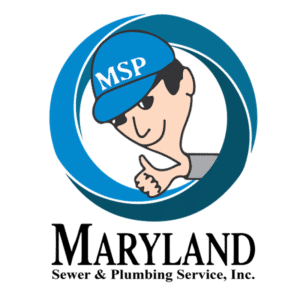
Choosing the Right Emergency Plumbing Service Like MD Sewer and Plumbing
When a plumbing emergency occurs, having a reliable emergency plumbing service on speed dial can make all the difference. With so many options available, selecting the right service provider can be overwhelming. However, by considering a few key factors, you can ensure you choose a plumbing company that meets your needs like MD Sewer and Plumbing.
First and foremost, look for a plumbing company with a proven track record of handling emergency situations. A reputable provider will have positive customer reviews and testimonials that speak to their reliability and expertise. Additionally, ensure they offer 24/7 emergency services like MD Sewer and Plumbing, so you can rely on them to respond quickly, no matter the time of day.
Verify that the plumbing company is fully licensed and insured like MD Sewer and Plumbing. This accreditation demonstrates their commitment to quality and safety, giving you peace of mind that your home’s plumbing system is in good hands.
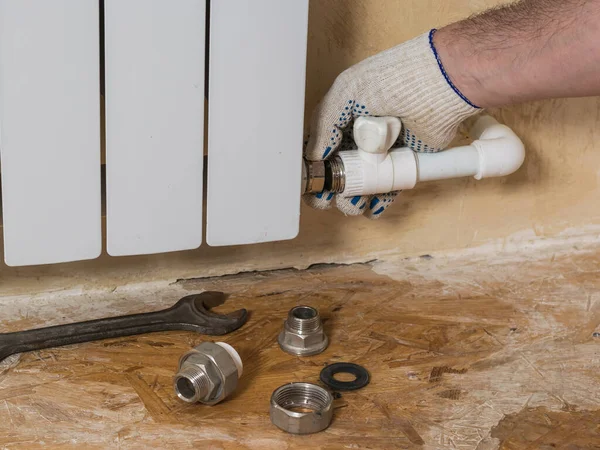
Preparing for a Plumbing Emergency
Preparation is key when it comes to managing a plumbing emergency. By taking proactive steps, you can minimize the impact of unexpected issues and ensure a swift resolution. Here are some tips for preparing for a plumbing emergency:
- Know Your Main Water Valve – Familiarize yourself with the location of your main water valve and ensure everyone in your household knows how to shut it off. This knowledge can prevent significant water damage in the event of a burst pipe or major leak.
- Create an Emergency Contact List – Compile a list of emergency contacts, including your preferred plumbing service provider, local utility companies, and nearby family members or friends. Keep this list easily accessible, so you can quickly reach out for help when needed.
- Assemble a Plumbing Emergency Kit –Stock a basic plumbing emergency kit with essential tools and supplies, such as a plunger, pipe wrench, plumbing tape, and a bucket. Having these items on hand can help you address minor issues while waiting for professional assistance.
The Importance of Professional Plumbing Inspections
Regular plumbing inspections are a crucial component of preventative maintenance, helping to identify potential issues before they escalate into emergencies. By scheduling routine inspections with a professional plumber, you can ensure your plumbing system remains in excellent condition.
During an inspection, a skilled plumber will assess various aspects of your plumbing system, such as pipes, drains, water heaters, and fixtures. They’ll look for signs of wear and tear, corrosion, or blockages that could lead to problems down the line. By catching these issues early, you can address them proactively, saving you time and money in the long run.
In addition to inspecting your plumbing system, a professional plumber can provide valuable advice on maintaining and optimizing its performance. They may recommend upgrades, such as installing a sump pump or replacing old fixtures, to improve efficiency and prevent future emergencies.
The Role of Technology in Modern Emergency Plumbing Services
Advancements in technology have revolutionized the plumbing industry, making emergency services more efficient and effective than ever before. Innovative tools and techniques have empowered plumbers to diagnose and resolve issues with greater precision and speed.
One such advancement is the use of video camera inspections. These cameras allow plumbers to visually inspect the interior of pipes and drains, identifying blockages, leaks, or damage that may not be visible from the outside. This technology enables plumbers to pinpoint the exact location and cause of a problem, leading to faster and more accurate repairs.
Another technological innovation is hydrojetting, a powerful technique used to clear stubborn clogs and debris from pipes and drains. By utilizing high-pressure water jets, plumbers can effectively remove blockages without damaging the surrounding pipes. This method is both efficient and environmentally friendly, making it an ideal solution for many plumbing emergencies.
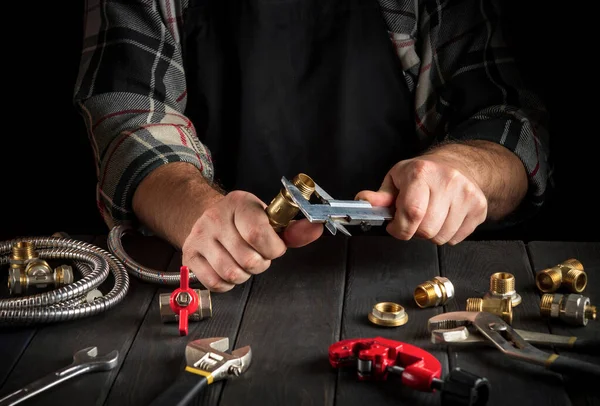
Understanding Plumbing System Components
To effectively manage a plumbing emergency, it’s essential to understand the key components of your home’s plumbing system. Familiarity with these components can help you identify issues and communicate effectively with your plumber.
Water Supply System – This system delivers clean water to your home through a network of pipes and fixtures. It includes the main water valve, water meter, and various shut-off valves for individual fixtures.
Drain-Waste-Vent (DWV) System – The DWV system removes wastewater and vent gases from your home. It consists of drain pipes, traps, and vent pipes that ensure proper drainage and prevent sewer gas from entering your living space.
Fixtures and Appliances – Your plumbing system includes various fixtures and appliances, such as sinks, toilets, water heaters, and washing machines. These components are connected to the water supply and DWV systems, facilitating water usage and waste removal.
Recognizing the Signs of a Plumbing Issue
Being able to recognize the early signs of a plumbing issue can help you address problems before they escalate into emergencies. By staying vigilant and proactive, you can maintain a healthy and efficient plumbing system.
Unusual Sounds – Gurgling, banging, or whistling noises coming from pipes or fixtures may indicate a problem. These sounds can result from air trapped in the pipes, water pressure issues, or blockages.
Slow Drainage – If water takes longer than usual to drain from sinks, tubs, or showers, it may signal a clog or partial blockage in the pipes. Addressing this issue early can prevent complete blockages and backups.
Water Discoloration – Discolored water, particularly if it appears rusty or brown, can indicate corrosion in your pipes. This issue should be addressed promptly to prevent further damage and maintain water quality.
The Importance of Communication During a Plumbing Emergency
Clear communication between you and your emergency plumber is crucial for resolving plumbing issues quickly and efficiently. By providing accurate information and asking the right questions, you can ensure a successful outcome.
When contacting an emergency plumbing service, be prepared to explain the nature of the problem, its location, and any steps you’ve already taken to address it. This information will help the plumber assess the situation and arrive prepared with the necessary tools and equipment.
Additionally, don’t hesitate to ask questions about the repair process, estimated costs, and any potential follow-up actions. A professional plumber will be happy to provide clear explanations and guidance, ensuring you feel confident and informed throughout the process.
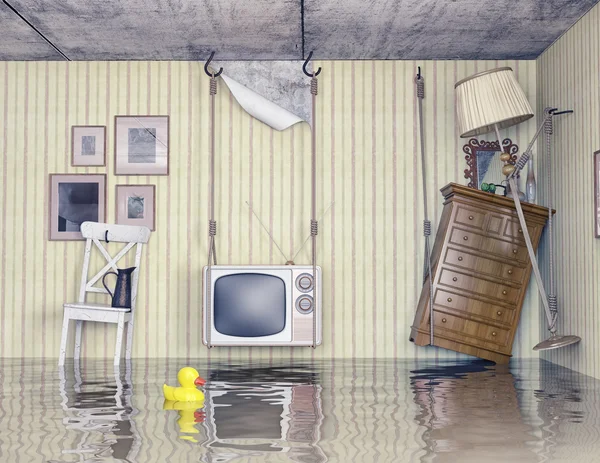
Conclusion
In the world of plumbing, emergencies are inevitable. However, with the right knowledge and preparation, you can effectively manage these situations and minimize their impact on your home. By understanding the basics of emergency plumbing services, recognizing common issues, and knowing when to call in an expert, you’ll be well-equipped to handle any plumbing emergency that comes your way.
Remember, regular maintenance and inspections are key to preventing emergencies and ensuring the longevity of your plumbing system. By partnering with a reliable plumbing company and staying proactive, you can enjoy peace of mind knowing your home’s plumbing is in good hands. And for those interested in exploring more, consider connecting with professionals who can offer further insights and support in maintaining a healthy and efficient plumbing system.

